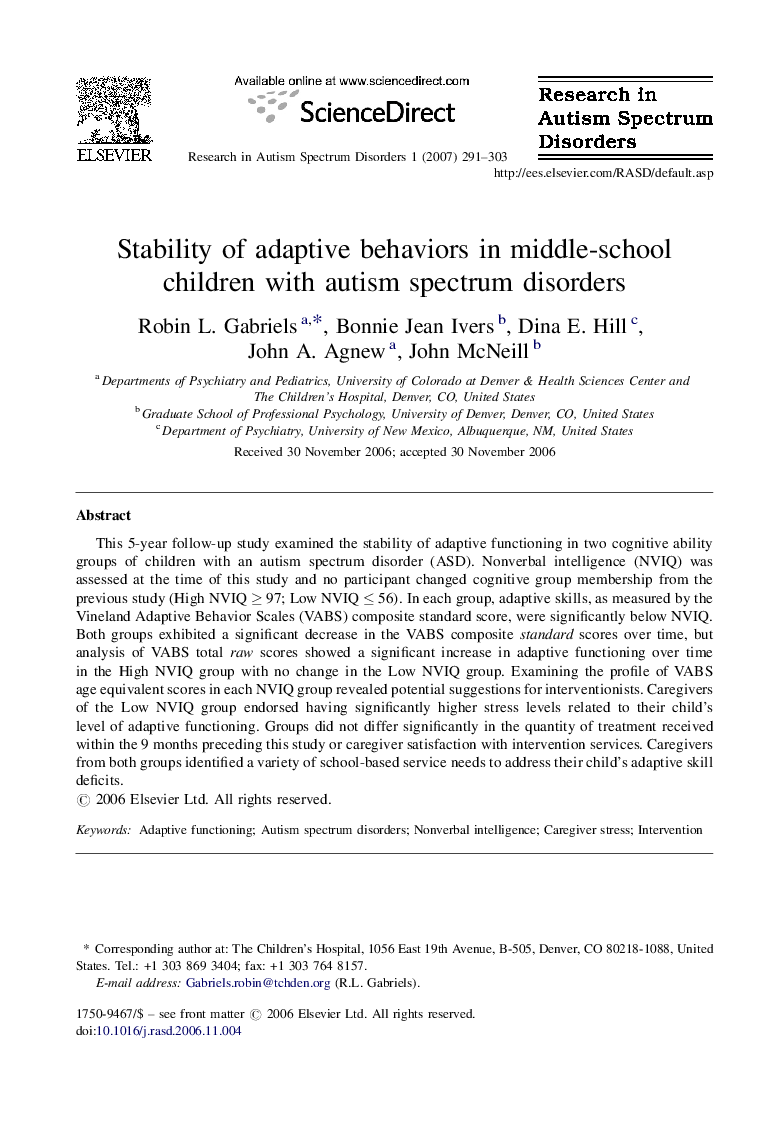ترجمه فارسی عنوان مقاله
ثبات رفتار سازشی در فرزندان وسط مدرسه با اختلالات طیف اوتیسم
عنوان انگلیسی
Stability of adaptive behaviors in middle-school children with autism spectrum disorders
| کد مقاله | سال انتشار | تعداد صفحات مقاله انگلیسی |
|---|---|---|
| 40111 | 2007 | 13 صفحه PDF |
منبع

Publisher : Elsevier - Science Direct (الزویر - ساینس دایرکت)
Journal : Research in Autism Spectrum Disorders, Volume 1, Issue 4, October–December 2007, Pages 291–303
ترجمه کلمات کلیدی
عملکرد انطباقی - اختلالات طیف اوتیسم - هوش غیر کلامی - استرس مراقب بهداشتی - مداخله
کلمات کلیدی انگلیسی
Adaptive functioning; Autism spectrum disorders; Nonverbal intelligence; Caregiver stress; Intervention

